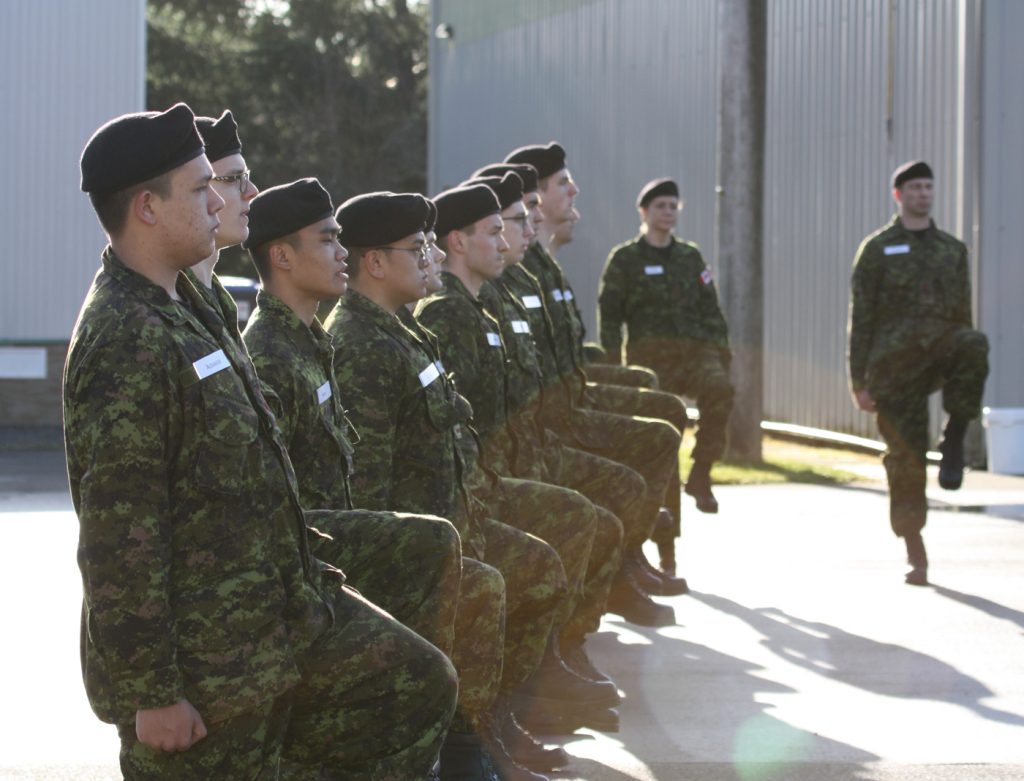Peter Mallett
Staff Writer
––
Albert Head Training Centre is now the location for the Decentralized Basic Military Qualification (DBMQ) on the West Coast.
Naval Fleet School Pacific moved its basic training operations for naval recruits from Work Point and is currently conducting the first of five DBMQ serials in Metchosin. This year’s training will run from March to November 2021.
The goal is to continue safely training the navy’s newest sailors through a COVID-19 persistent environment. Each of the five serials consists of 55 mostly Regular Force naval recruits who will learn inside a training bubble and be confined to the base for a period of 10 weeks.
“Last year, the first serial we ran with an eye to seeing if we could do it and make it work,” said LCdr Mike Erwin, NFS(P) Seamanship Division Commander. “Now we are running our Basic Military Qualifications with an eye to sustained operations and turning Albert Head into a centre of excellence.”
Work Point was a great starting point to train the first group of recruits last year, he says, but adds a more permanent solution was needed to accommodate this year’s greatly expanded list of 275 naval recruits.
Recruits enter a two-week isolation period at the Wardroom before their transfer by bus to Albert Head.
Training is then delivered by Naval Fleet School Pacific under the leadership of the Naval Personnel Training Group. Recruits are closely monitored by Canadian Forces Health Services (Pacific) staff throughout their arrival in Victoria to mitigate any potential COVID-19 exposures.
Both Fleet Schools on either coast are training for Regular Force recruits, while Naval Fleet School (Quebec) is supporting training for the Naval Reserve recruits at Camp Vimy, CFB Valcartier.
Up until last year, Basic Military Qualification for all recruits was centralized at Canadian Forces Leadership and Recruit School in St. Jean-sur-Richelieu, Quebec. When the pandemic hit, the idea of re-locating navy recruit training to both naval bases and in Quebec was fast-tracked.
“The decentralization of training was required as a means to increase the Canadian Armed Forces, meet the personnel requirements of the Fleet, and ease the pressure on the Leadership and Recruit School, who also train army and air force personnel,” says LCdr Erwin.
A full training serial includes the standard modules: classroom instruction, parade drill, field training, weapons training, range practice, first aid, basic fire extinguishing skills, confidence course mastery, survival skills, and chemical, biological, radiological and nuclear training, along with physical fitness training and testing. Guest lecturers deliver training through a variety of means, including virtual platforms, to minimize physical interaction.
This year, additional instructors were pulled from navy units such as Canadian Fleet Pacific, HMC Ships, and the Naval Security Team.
“The Personnel Coordination Centre had to find us training staff from other units at the base,” says LCdr Erwin. “The Formation really stepped up in this regard and saw this as a task of the highest priority for the navy and it truly was a team effort to get this done.”
––––










